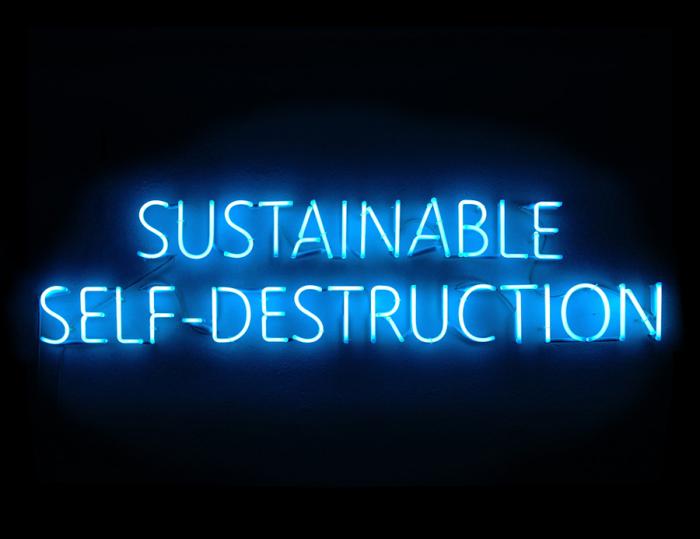by Salvatore De Rosa and Jevgeniy Bluwstein
The “Warning to Humanity” signed by more than 15.000 scientists calls for action to save the planet proposing elitist environmentalism and missing the real target. Instead, scientists should analyse the roots of the socio-ecological crisis and join the grassroots struggles pushing for structural changes from local to global
A recent “Warning to Humanity” by Ripple et al, signed by more than 15.000 scientists, has received global media attention. According to this call for action, the threat of global environmental collapse due to the crossing of several planetary boundaries is the future that awaits all of humanity, unless several “urgent steps” delineated in the article are put into practice as soon as possible. These steps can be synthesized in nature conservation, preservation and restoration (including rewilding), education of people to appreciation of nature, reduction of fertility rates, greening of technology and of consumption, eco-taxes, renewable energies, and control of population size.
This 2nd warning reiterates the 1st one issued 25 years ago by the Union of Concerned Scientists and signed by more than 1.700 independent scientists, warning humankind of its “collision course with the natural world” and proclaiming the need of “fundamental changes” in societies’ relations with Earth’s ecosystems. The focus of the 1992 Warning was on limits: the limited capacity of the biosphere to tolerate human impacts and the limits the scientists proposed to enforce on the growth of human populations, greenhouse gas emissions, deforestation and biodiversity loss, in order to “save the planet”.
The new, 2nd Warning admits that “with the exception of stabilizing the stratospheric ozone layer, humanity has failed to make sufficient progress in generally solving these foreseen environmental challenges, and alarmingly, most of them are getting far worse”. Therefore, the need of a “second notice”, this time backed by many more scientists. Despite the time passed, the receipt of salvation did not change much and, especially, the newly issued Warning echoes the flawed assumptions that burdened the first one.
Against the looming Anthropocene – a contested term next to other proposals for naming our epoch – this may seem to be an important and urgent call. Yet, who is the “humanity” these righteous scientists are referring to? Supposedly, the whole of humanity. Nevertheless, we contend, it is misleading to gather under the same umbrella the deeply uneven socio-ecological and metabolic patterns that underpin the lives of people who are living at different heights of the per-capita consumption and emission ladder.
Political ecology teaches us that the way in which socio-ecological problems are framed is itself a field of struggle traversed by hegemonic representations and social conflicts. We therefore beg to question this latest warning to “humanity” and the call to action. In our view, its fundamental flaw is the lacking of a political economic and ecological analysis of power relations and structures that have produced the global economic machine pushing production and consumption beyond planetary boundaries.
The word capitalism never appears in the Warning, and neither does the word neoliberalism. Without providing an analysis of the underlying causes of the most pressing problems of our time (e.g. why are economies addicted to growth?), Ripple et al and signatories found a scapegoat in the “overpopulation” issue, a thinly veiled attempt – according to Fletcher et al – to “displace attention from systemic issues within the political economy of development, namely, the futility of pursuing sustainable development within the context of a neoliberal capitalism that characteristically exacerbates both economic inequality and environmental degradation” (Fletcher et al 2014).

Source: Twitter
What would a thorough and meaningful analysis of the global environmental crisis look like? One recent example is the work of political scientists Ulrich Brand and Markus Wissen. They identify the roots of the problem not in the “barbarian hordes” and the “overpopulation bogeyman” but in the “imperial mode of living” by affluent populations of the Global North that is expanding among the growing middle and upper classes around the world, and giving rise to a sort of transnational consumer class (Brand and Wissen 2012).
This mode of living is premised upon “prevailing patterns of production and consumption that disproportionately rely on global labour power, resources and sinks”, and it is sustained by “exclusive access to resources, guaranteed by contract or through open violence, and [by] the externalisation of the socio-ecological costs that using these resources entails” (Brand and Wissen 2012). Put differently, it is not the amount of people that matters for understanding the roots of the environmental crisis. Instead, what matter are the ways in which production, consumption and distribution are organized and legitimized, and the allocation of societal gains and losses across geographies and different groups of people.
Indeed, there is ample evidence that the EU, for instance, is to a large extent externalising its environmental impacts in the form of resource extraction and CO2 emissions onto the Global South (Sachs and Santarius 2007:55–66; Martinez-Alier 2006; UNEP 2011a:ch.4). Another inconvenient reality is that it is apparently not enough to appeal to more education as part of the solution, as suggested by Ripple et al and signatories. A thorough engagement with the political economy of the global environmental crisis would need to disentangle the paradox of more education = more resource use. It turns out that “people with high levels of education, relatively high incomes and high environmental consciousness have the highest per capita resource use” (Wuppertal Institute, 2008:144–54 quoted in Brand and Wissen 2012).
It is therefore not surprising that conservationists, people who often claim the moral high ground, such as the authors of the Warning to Humanity, produce similar environmental footprints as other affluent groups (Balmford et al 2017). In short, the “exposure to environmental information may have little impact on pro-environmental behavior” (Balmford et al 2017). Therefore moralizing appeals to the problem of overpopulation and to a lack of education are misplaced. What these appeals do achieve, is scapegoating those who have contributed the least to the problems discussed, while perpetuating the impression that the imperial mode of living can be maintained.
Instead of casting much of the blame on people in the Global South (by framing it as a problem of “overpopulation”), Ripple et al and signatories should have realized that there are already numerous struggles against the destructive effects of the imperial mode of living being waged around the world. Misery caused by detrimental socio-environmental changes is here for many disenfranchised, marginalised and poor social groups, whose rallying cry is at best ignored and at worst repressed with violence. Just browsing the over 2200 socio-environmental conflicts recorded in the Environmental Justice Atlas can give an idea of how struggles to “save the planet” are already ongoing.
Front-lines are diffused and barricades are raised every day against contamination, energy and infrastructure megaprojects, polluting factories, coercive conservation, large-scale agriculture and deforestation. Rather than warning humanity about the “overpopulation bogeyman” (Fletcher et al 2014), scientists should call out the most privileged among us to join these struggles. Moreover, global voices should be raised to intimate national and international governmental institutions to stop the repression of environmental defenders, plagued by death threats, arrests, sexual assault, aggressive legal attacks, state repression and corporate intimidation.

Maria do Espirito Santo and Zé Claudio Ribeiro da Silva, killed in May 2011 by gunmen for their activism. The couple had been leading the campaign against illegal deforestation and the eviction of rural workers by a local farmer (photo by Felipe Milanez. Source: Vice)
The true defenders of ecosystems are not those buying fair-green-sustainable products or travelling around the world to visit national parks and nature reserves. On the front-lines, there are people protecting the lands and the environments on which they often depend for a living. They fight against industries like mining, logging, conservation-based tourism, and agribusiness, precisely those industries that guarantee the imperial mode of living.
The “organized grassroots efforts” that the Warning to Humanity points to, do not need to be called for. Grassroots environmental groups are already pushing from local to global for structural changes. Multiple global, or rather multi-local, coalitions like leave the oil in the soil, Ende Gelände and Zero Waste are doing already concrete steps that, by intervening in socio-ecological metabolic patterns in myriads of localities, attempt to influence broader production and consumption networks. What is needed is a generalization of these struggles, and scientists can play a fundamental role. Provided, however, they offer thorough analyses of the roots of the problems and commitment to socio-ecological justice.
Salvatore De Rosa is an editor of this blog and part of the ENTITLE Collective.
Jevgeniy Bluwstein is a PhD candidate in political ecology at the University of Copenhagen, Denmark. His research interests include political ecologies and geographies of conservation and development interventions, as well as resource and land conflicts, governance and control.






Reblogged this on Political Ecology Network.
Great article. Garrett Hardin, the father of much contemporary ‘overpopulation environmentalism’, procreated 4 (American) children…
Reblogged this on Food Governance.
Cet appel des scientifiques des scientifiques du monde à l’humanité est hypocrite bien sûr. Et il est aussi si puéril et incohérent!
Leur deuxième phrase rappelle que : “un changement radical dans notre intendance de la Terre et de la vie sur elle s’avère nécessaire pour éviter la misère humaine à grande échelle”. Cependant, avec leur dernière phrase, il nous demande de continuer à voir le monde la même façon que d’habitude : “Nous devons reconnaître, dans notre vie quotidienne et dans nos institutions gouvernementales, que la Terre avec toute sa vie est notre seul foyer”.
Où se trouve le changement de vision qu’ils proposent? Ne voit-on pas tous déjà la Terre comme notre foyer? Sérieusement, qui cherche à louer un appart pour vivre ailleurs que sur Terre, dans notre vie de tous les jours? Ces scientifiques ne savent pas ce qu’ils disent.
Il y a 25 ans quelques personnes ont lancé l’appel. Cela n’a pas marché. Solution d’un truc qui ne marche pas pour nos 15000 scientifiques actuels : On fait la même chose… mais plus fort.
Camille, I love you for writing this!!
http://www.resilience.org/stories/2017-12-13/overpopulation-problem-capitalist-overdevelopment-bigger-problem
according to me they are strongly linked